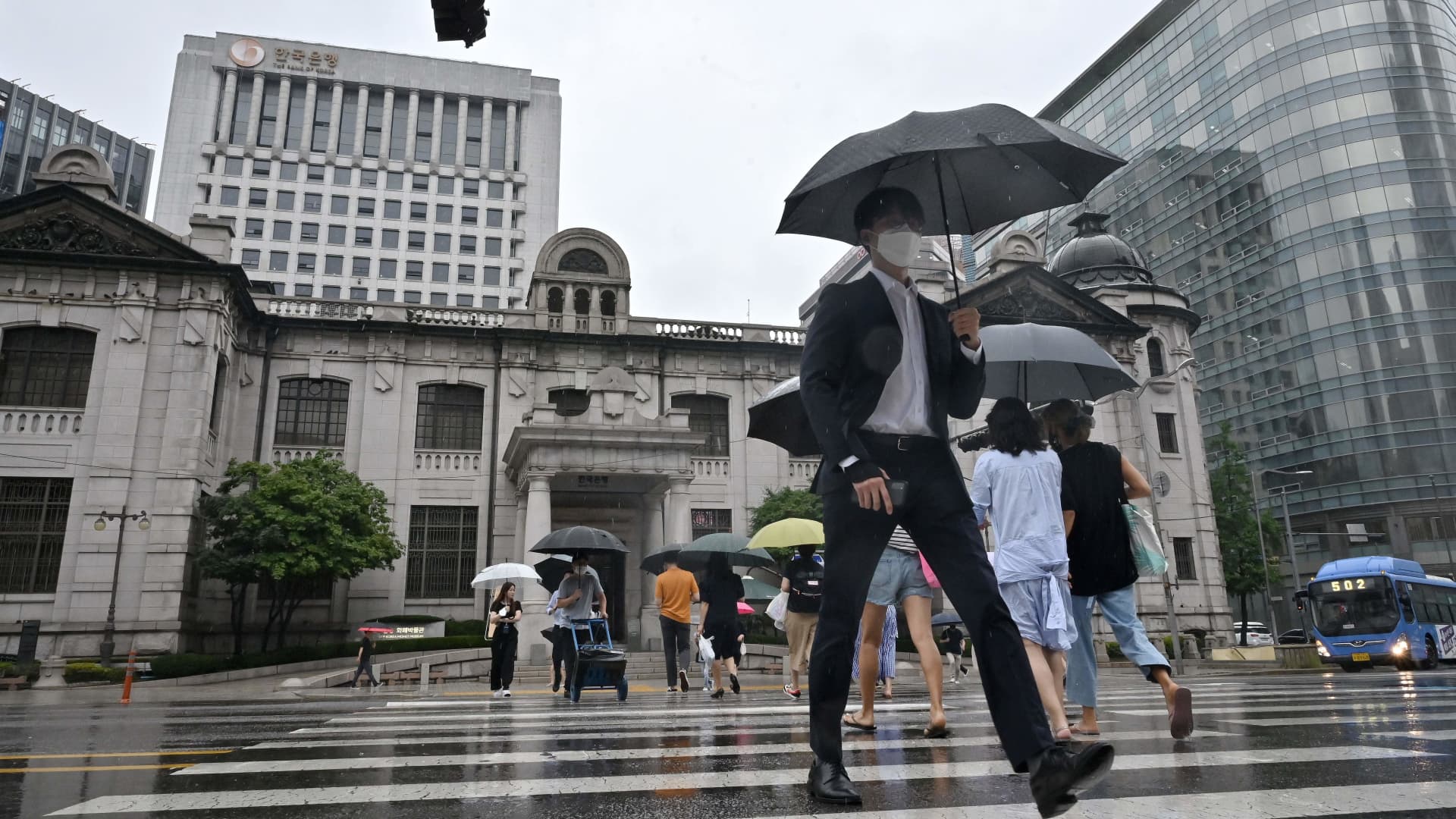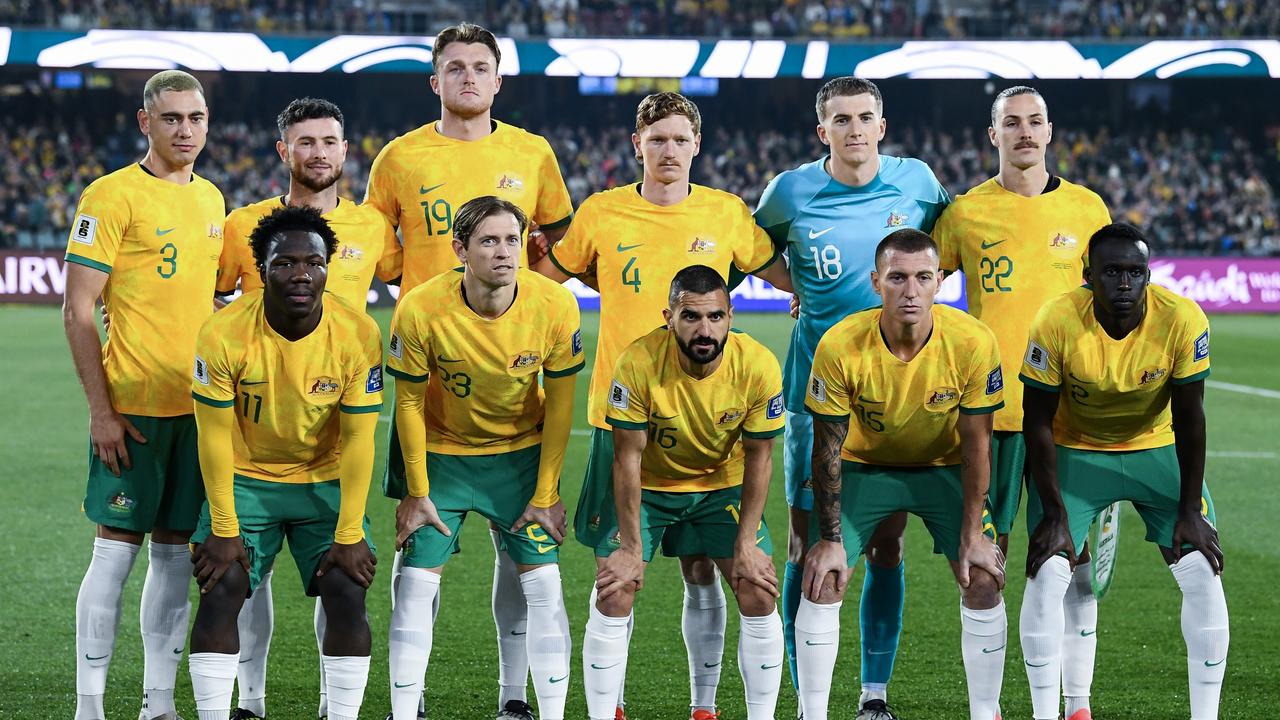Pedestrians crossing a road in front of the Bank of Korea headquarters in Seoul on July 13, 2022. South Korean economic growth unexpectedly picked up in the second quarter as strong consumption on eased Covid-19 restrictions offset poor exports, supporting the case for further central bank interest rate hikes.
Jung Yeon-je | Afp | Getty Images
South Korea’s central bank has cut its benchmark interest rate by 25 basis points to 3.25%, the first rate cut from the BOK since the Federal Reserve started tightening its monetary policy in March 2022.
This was in line with a poll of economists from Reuters, who forecasted a rate cut.
The move comes after South Korea’s inflation rate touched its lowest level in over three years, coming in at 1.6% in September, well under BOK’s target of 2%.
BOK noted that inflation has “shown a clear trend of stabilization” in a statement on Friday, adding that household debt growth has slowed and risks in the foreign exchange market have somewhat eased.
“The Board, therefore, judged that it is appropriate to slightly moderate the restrictive monetary policy and examine the impact of this going forward,” the bank said.
Back in August 2021, the BOK started raising rates, adding 300 basis points in just 16 months to reach a 15 year high of 3.5% in January 2023.
At that time, South Korea’s inflation stood at 2.6%, but climbed sharply to hit 6.3% in July 2022, its highest in over 20 years.
Park Seok Gil, chief Korea economist at JPMorgan, told CNBC’s Street Signs Asia on Friday that the BOK’s decision is likely the start of a broader rate cut cycle.
“The BOK’s argument for cutting rates is not responding to weak domestic demand, but instead, is the normalizing their policy stance,” he said.
If BOK continues “neutralizing” its tightened policy stance by about 75 basis points, that would help “the beefing of some parts of private consumption growth,” he added.
In an Oct. 4 report before the decision, Morgan Stanley’s chief Korea economist Kathleen Oh said rate cuts were “long-awaited,” pointing out that it has been 22 months since the last rate move in January 2023.
Oh noted that macro conditions were supportive of a rate cut, with a “favourable” inflationary backdrop. “We’ve continued to see muted inflationary pressure since July this year, and upside risks to inflation appear to have faded amid stronger USDKRW and global oil prices,” according to the report.
Furthermore, housing demand, which Morgan Stanley said was the main factor preventing a cut at the BOK’s monetary policy meeting, has faded, which has allowed BOK members to be more dovish.
Oh predicted that after the October cut of 25 basis points, three more consecutive cuts will follow on a quarterly basis, eventually bringing the BOK’s benchmark interest rate to 2.5%.





